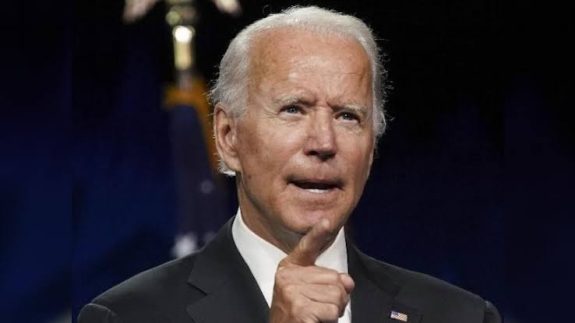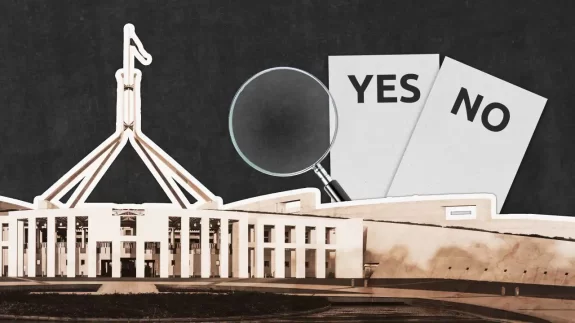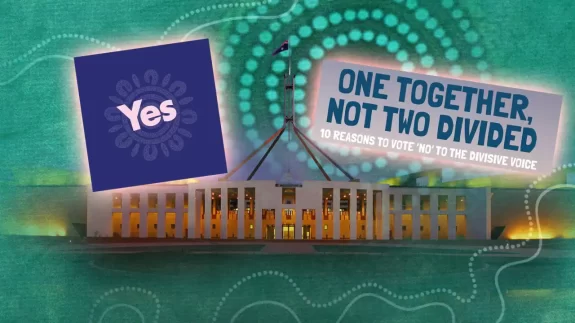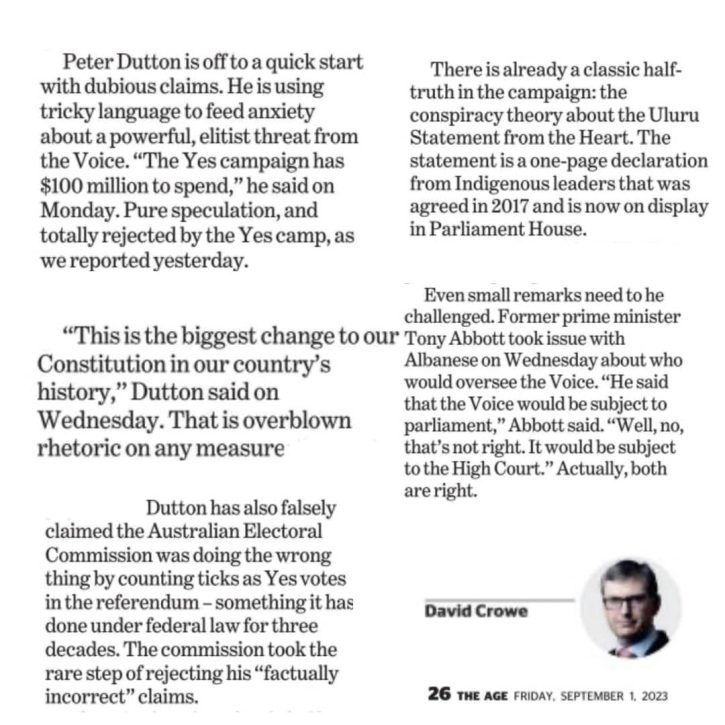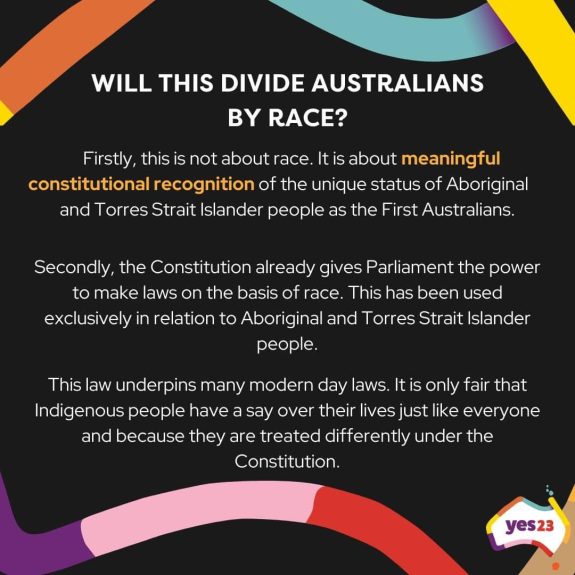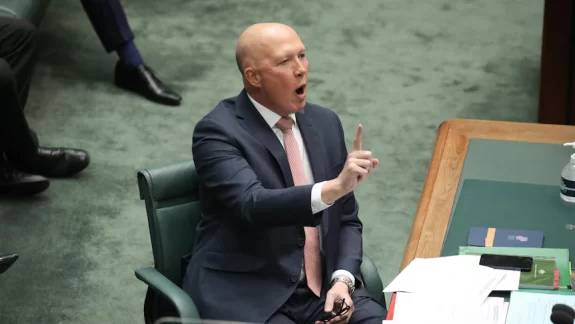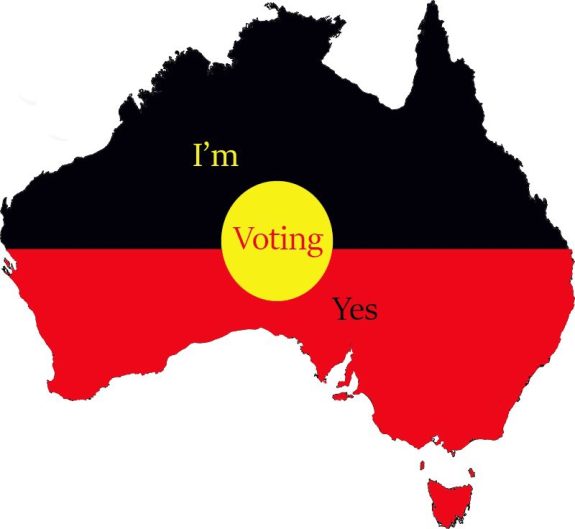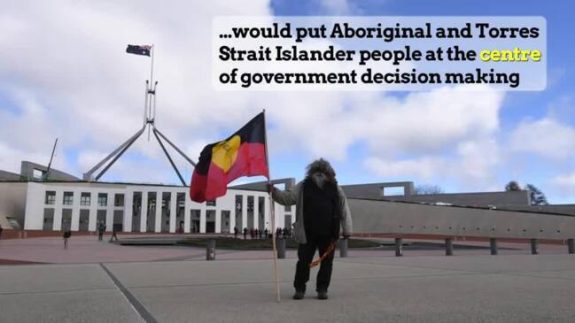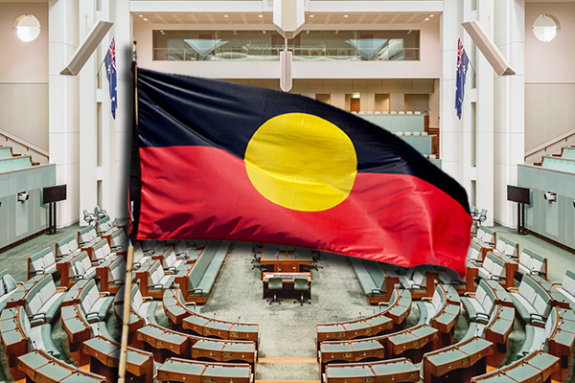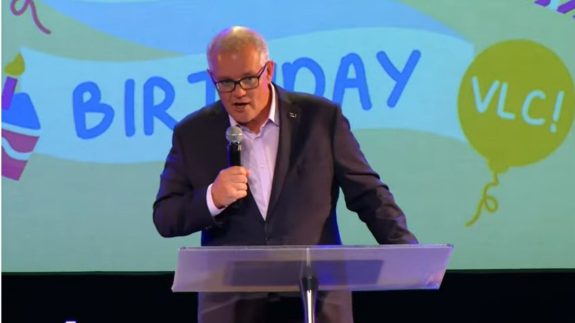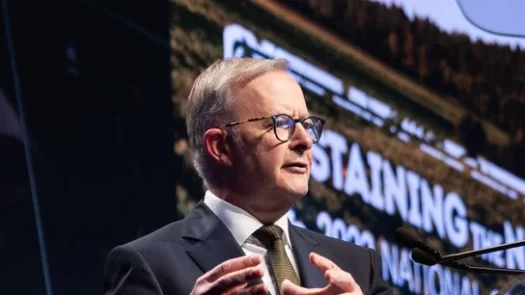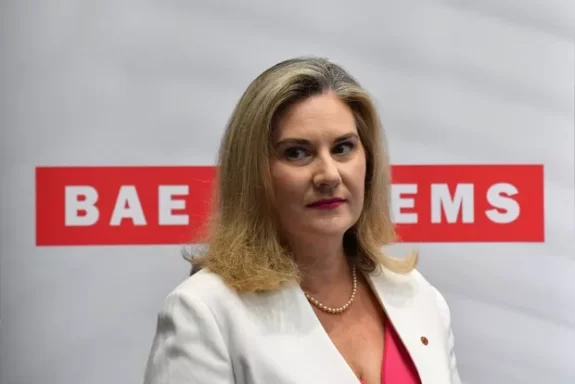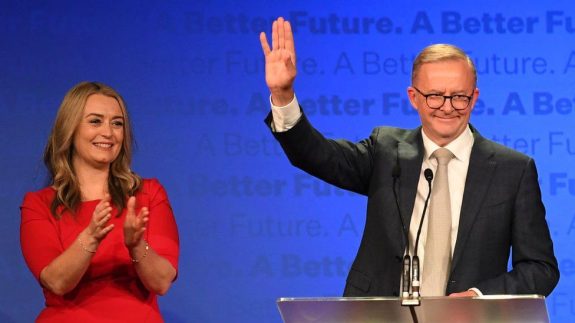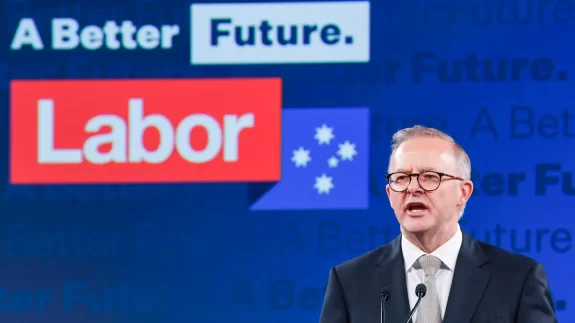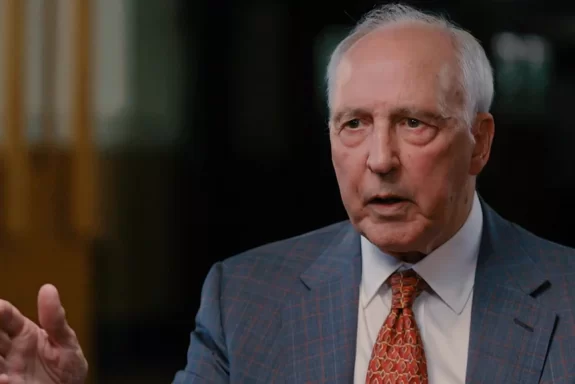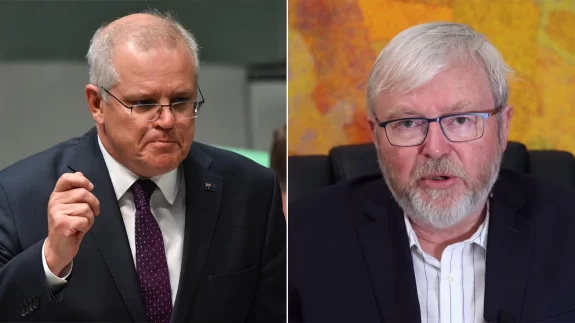Undoubtedly for some of you out there in this endless universe of social media you may well have still not made up your minds who you are going to vote for on 21 May 2022, or you perhaps you have an idea, but you are still considering your decision. I don’t blame you as it has been a long election and with all the various policy announcements, advertisements and regrettably even some members of the mainstream media shouting their opinions at you. All these factors may create some confusion.
Obviously by the title you can see I am writing this article to explain to you the reasons why you should vote Labor, so that on Sunday 22 May 2022 we know we shall be looking forward to a brighter future under an Albanese Labor Government. I shall also explain to you why we have vote out this corrupt Morrison Government. So please for the sake of our future, and the future of the generations of your family to come, take a few short moments to consider this article.
Vote for Labor
A vote for Labor will ensure:
1. Scott Morrison is NO LONGER our Prime Minister. There is a reason why Morrison hasn’t until this week visited many electorates, and that is because the Liberal Party did not want him to because he is so disliked by most Australians. In 2019 Morrison snuck off to Hawaii whilst Australia was going up in flames. That was the measure of care he had, an absolute zero level of care whilst almost 50 people died and so many people also lost their houses. “I don’t hold a hose mate” was his weak excuse. When he eventually returned to Australia, he tried to make disappointed firefighters and people who were disappointed with him to shake his hand.
Meanwhile we were discovering there was systemic rorting within his government, wasting billions of dollars of our money. Morrison then failed us at the start of the pandemic regarding The Ruby Princess docking in Sydney, the delay with Covid vaccines after telling us a lie we were at the front of the queue and then of course failing with aged care, both before and during this pandemic.
Morrison has also demonstrated on many occasions he has no understanding of women, indeed many women in Australia have a multitude of reasons why they dislike Morrison. He lies repeatedly (including to our allies France and the USA), bulldozes, doesn’t take responsibility and has not one single plan for the future, other than ensuring he remains Prime Minister.
Even his preselection for the seat of Cook in 2007 carries with it the foul smell of accusations of resorting to racism, and other odious acts. That is quite a list, and there are more reasons, but be sure of this, if he does get re-elected his behaviour will only get worse regarding discrimination, protecting his own interests and misusing our money. I have previously written about Morrison’s lies and character flaws in this two part article published by The Australian Independent Media Network.
Scott Morrison’s Lies, Character and Incompetence
Scott Morrison’s Lies, Character and Incompetence (part 2)
2. Your costs of living will become affordable. Labor’s five-point Economic Plan is calibrated to reduce the costs of living; drive productivity growth and expand the capacity of the economy to alleviate supply side pressures; get wages growing so that Australians aren’t held back or left behind; and invest public money in a way that delivers genuine economic value for Australians. Labor supports a 5.1% raise to the minimum wage.
Empirical economic research proves this will be good for our economy. You have for almost 9 years now suffered under a series of Liberal governments from wage suppression as the cost of living has increased, because the Australian Bureau of Statistics (‘ABS’) excludes many items from its CPI calculation, such as fruit, vegetables and fuel.
3. You have access to an affordable home as a first homebuyer. The Liberals last minute brain explosion will only make housing more out of reach for you as a first home buyer; economists don’t support the idea and agree it will make housing even more unaffordable. An Albanese Labor Government will help more people buy a home sooner by cutting the cost of buying a home by up to 40 per cent. It will restore the Great Australian Dream, and it is a sensible plan which won’t cause housing to become even more unaffordable.
4. Women’s Interests will be better protected. Australian women want, indeed deserve equality. A Labor Government will address the gender gap at work with a national drive to close the gender pay gap; provide the national leadership and investment needed to end family, domestic and sexual violence; take real action to stop sexual harassment at work by implementing all 55 recommendations of the Respect@Work report; Labor will also deliver more safe and affordable housing, helping women and children fleeing violence, and, Labor will work with states and territories to strengthen and harmonise laws relating to sexual assault and consent.
Under the Morrison Government, women are being left behind. We’ve plummeted down the global gender gap rankings since 2013 to our worst ever result of 50th place worldwide.
5. Establish a National Ant-Corruption Commission. An Albanese Labor Government will legislate a powerful, transparent and independent National Anti-Corruption Commission (‘NAC’) by the end of 2022. Labor’s NAC will have a broad jurisdiction to investigate Commonwealth ministers, public servants, statutory office holders, government agencies, parliamentarians, and personal staff of politicians. Labor’s NAC will carry out its functions independently of government and it will have the power to investigate allegations of serious and systemic corruption that occurred before or after its establishment. Morrison failed to deliver his 2019 Election promise of establishing a Federal ICAC. (Click this link for further information about the NAC).
6. Powering Australia. Creating jobs, cutting power bills and reducing emissions by boosting renewable energy are at the centre of Labor’s Powering Australia plan. A Labor Government will close the yawning gap between our current Federal Government and our business community, agricultural sector and state governments when it comes to investing in the renewables that will power our future. Powering Australia will create 604,000 jobs, with 5 out of 6 new jobs to be created in the regions and it will spur $76 billion of investment.
Alongside the economic benefits, our plan will reduce Australia’s emissions by 43% by 2030 – which will become Australia’s target under the Paris Agreement, keeping us on track for net zero by 2050.
Under Powering Australia, Labor will start restoring manufacturing in this country; it makes no economic sense that we send the primary materials overseas to be manufactured at the secondary level of economic function, to only then buy those same primary materials back as finished goods in the tertiary level of the economy. The Morrison Government won’t reach net zero, indeed there is fighting in their ranks about doing anything at all.
7. Aged Care. Older Australians helped build this country. They worked hard, paid their taxes and raised their families. An Albanese Government will ensure every aged care facility will be required to have a registered, qualified nurse on site, 24 hours a day, 7 days a week. Labor will raise the standard of aged care across the board – by ensuring there are more carers, who have more time to care.
Labor will back a real pay rise for aged care workers. Labor will ensure that there is better food for residents of aged care homes. Labor will make residential care providers report – in public and in detail – what they are spending money on. Aged care is in crisis under the Morrison Government, but Labor will fix aged care in this country.
8. First Nations. Starting with its commitment to implement the Uluru Statement from the Heart in full, an Albanese Labor Government will renew our national commitment to Reconciliation and work in genuine partnership with First Nations people for better outcomes.
The Uluru Statement from the Heart was generous offer of a genuine partnership, and a real chance for us to create a reconciled Australia. It calls for Voice, Treaty and Truth. Labor is the only party to support it in full. Labor will progress a referendum to constitutionally enshrine a Voice to Parliament in the Constitution as a matter of priority. Labor will also establish a Makarrata Commission to work with the Voice to Parliament on a national process for Treaty and Truth-telling. (Fore more information about Labor’s First Nations policy, click this link).
Labor has an extensive portfolio of policies to fund education, restore funding to the ABC, saving Medicare by restoring funding, fix the NDIS, fixing the NBN, a superior approach to National Security, as well as environmental protection and watering proofing Australia (to name a few).
Morrison Must Go
The last 9 years of Liberal governments have only caused most Australians heartache and pain. In Morrison as Prime Minister we have the most divisive Prime Minister in our history who has overseen the most incompetent corrupt government since our Federation. I have previously written an article published by The AIMN about how much pain we have endured over the past 3 years:
Are YOU Really Arguing We Can’t Feed and Care for Our Grandparents?
If you vote for the Coalition tomorrow (whether that be for the Liberal or National Parties), you will continue to suffer:
1. Three more years of Morrison, Joyce and Dutton. I have already addressed herein just some of the many character flaws and incompetence of Morrison. However, with Morrison we have to also endure the embarrassment of Joyce as Deputy Prime Minister, as well as Peter Dutton who can only be described as a mean hearted person. Morrison and Dutton have destroyed our relationship with our allies, like breaking the submarine contract with France, causing us to incur $5.5Billion in damages- that is right we must pay with our money. Joyce does not have any sensible plans for regional Australia, and he can’t even control Canavan. Morrison, Dutton and Joyce are literally the ‘Three Stooges’ of Australian politics.
2. No Federal ICAC. I have for the main part addressed this issue above regarding Labor’s NAC. Morrison broke his 2019 Election promise. He even had the temerity to try and smear the New South Wales ICAC, only to have Dominic Perrotett publicly disagree with him. This has been the worst government since federation regarding misuse of our funds, rorts, integrity and transparency. Australia now has its worst ever international Corruptions Perceptions Index score, ranking Australia in 18th place. It is an international embarrassment for us, and only Labor’s NAC will fix this problem.
3. Poor treatment of Women. You would have had to be marooned on Pluto, and even then without a working radio, if you did not hear about the Morrison Government’s treatment of women. For legal reasons I won’t refer to one example, but there has been right from the outset of this Federal Election the issue about the treatment of Rachelle Miller. Ms Miller had been involved in an affair with Tudge, in which she claims she was also subjected to physical violence.
According to Morrison, Tudge had stepped down from the ministry, but at the start of this campaign Ms Miller bravely brought to the nation’s attention Tudge was still a member of cabinet. Tudge went missing for most of this election, and as Labor’s Jason Clare commented, even Scoobie Doo couldn’t find Tudge. When Tudge did come out of hiding, both he and Morrison confirmed he would be returning to a ministerial portfolio, even though we have paid Ms Miller $500,000.00 in damages regarding her claim against the Morrison Government. Ms Miller wanted to tell the country her story, but Morrison would not put in place the measures to let her do so.
The poor treatment of women by the Morrison Government is not limited to Ms Miller, we know that Julia Banks, Concetta Fieravanti-Wells, Jacquie Lambie and Pauline Hanson have complained about either being bullied by Morrison, or commented upon his terrible character flaws, not to mention the former CEO of Australia Post. The Morrison Government has not even put in a place a plan to protect the interests of women like Labor has.
As reported on 10 News at 6.00pm on 18 May 2022, 10 News conducted a social media poll on Facebook, Twitter and Instagram targeted only at women asking the question, “who do you believe will better protect women’s interests, Labor or Liberal?” The results of the polls were 71%, 90% and 95% in favour of Labor. I don’t believe the Coalition have quite turned their minds to how much women dislike Morrison, Joyce and Dutton.
4. A poor economy. Notwithstanding the way Morrison and Frydenberg like to talk themselves up as economic managers, they have delivered the only recession this century. The Morrison Government has failed to address inflation in this country, an issue which they should have been aware of at the start of the pandemic. The costs of living are becoming unbearable for many Australians. Wages have not kept up with inflation, and in its submission to the Fair Work Commission (‘FWC’) about the minimum wage a whole chapter is devoted to the misconceived advantages of keeping wages low. Indeed, Morrison is so mean about wages he even argued against the extra 38 cents raise to the minimum wage which the unions are arguing for above the 62 cents argued for by business in the FWC.
There is a plethora of empirical economic research from around the world which proves raising wages is good for an economy. When the Coalition came to power in 2013, Labor handed over the number 1 economy in the world, including that we had not slipped into recession during the GFC and only $186Billion in national debt. It was rude, misleading and laughable for Morrison to make claims about Labor managing money when Morrison doubled the national debt before the pandemic, then he pushed the national debt up to about $1Trillion including paying $20Billion in JobKeeper payments to undeserving companies who the money can’t be recovered from, causing $5.5Billion in debt because of breaking the submarine contract with France, using $1Billion of our money for the government’s own advertising and then finally all of the Rorts.
Since coming to power the Coalition have erased 55,000 manufacturing jobs. The difference between the two budgets is Labor are providing cheaper child care, investing in cleaner energy which will create 604,000 new jobs, including about 80% of those jobs being in the regions, and finally investing in necessary training and education. These investments will result in economic growth. We have no tangible benefits arising from Morrison and Frydenberg causing our national debt to reach $1Trillion, we only have the largest ever trail of waste.
5. Climate Change The simple answer to this question is the Morrison Government doesn’t have a credible climate change policy. Their 2030 target of a 26% to 28% reduction in emissions does not meet international standards and the Morrison Government will not meet net zero emissions by 2050.
The Coalition is even in internal dispute about reaching net zero, with people like Canavan coming out and saying they will not support it. At the 2019 Federal Election Morrison lied to the nation about electric cars, when he claimed they would ruin the weekend. Australians have endured 9 years of climate inaction from the Coalition Government, and the Morrison Government is still wishing to resort to fossil fuels to power our nation, rather than renewable energy in which we hold the necessary mineral resources to build renewable energy products, including electric cars. The only way we will reach net zero by 2050 is by voting out the Morrison Government.
6. Scandals and Rorts. I have addressed a fair component of this reason to vote out the Morrison Government under Labor’s NCA plan, as well as Morrison breaking his promise about implementing a Federal ICAC. After 9 years of Coalition governments, in which we have witnessed 3 different Prime Ministers at the helm, Morrison has simply turned his back on integrity in government, he does not care. Look at the alleged way he even came to be the candidate for the seat of Cook in 2007; Ms Fieravanti-Wells was right that night when she said Morrison does not have a moral compass. With that lack of care comes poor standards of conduct within the Morrison Government, and this in turn has diminished people’s faith in government. This abuse of the First and Second Estates of our democracy has to end on 21 May 2022 by voting out of office the Morrison Government.
7. National Security and Foreign Affairs. I don’t know how many times we have seen a government since our federation conduct the complete opposite of what they screech about regarding national security. Morrison and Dutton like to comment about the threat of China, but when he was treasurer Morrison allowed the 99-year lease of the Port of Darwin to go ahead with a Chinese company which is linked to the Chinese Communist Government. The debacle of the Solomon Islands was 9 years in the making of poor treatment of our Pacific friends, which has resulted in the Solomon Islands forming closer ties with China.
Even when the mention of the Solomon Islands looking to China for relations was first broken in the media here, the Morrison Government did not do anything about the issue until it was too late. The United States believes the Morrison Government dropped the ball regarding the Solomon Islands, and they are right. Then we have the AUKUS debacle, which not only includes nuclear submarines we won’t have delivered until 2040, but also the misleading representation the Morrison Government made to the Biden Administration that there was bipartisan support, when the Morrison Government had not briefed the opposition about AUKUS. Throw in offending France again, including Morrison leaking to the press an email from a foreign leader which was sent under the cover of privacy, and you have the worst government on record since federation regarding national security and foreign affairs.
The list is endless regarding how appalling the Morrison Government has been, indeed how bad 9 years of Coalition governments have been from Abbott through to Morrison. Voting for a further 3 years of the Morrison Government will only lead to more misery, more waste, more scandals, more rorts, more incompetence and less equality. The Morrison Government has to end on 21 May 2022 Australia.
Tomorrow when you go to vote, my fellow Australians, join me and #Vote1Labor for a brighter future.
Like what we do at The AIMN?
You’ll like it even more knowing that your donation will help us to keep up the good fight.
Chuck in a few bucks and see just how far it goes!
Your contribution to help with the running costs of this site will be gratefully accepted.
You can donate through PayPal or credit card via the button below, or donate via bank transfer: BSB: 062500; A/c no: 10495969

